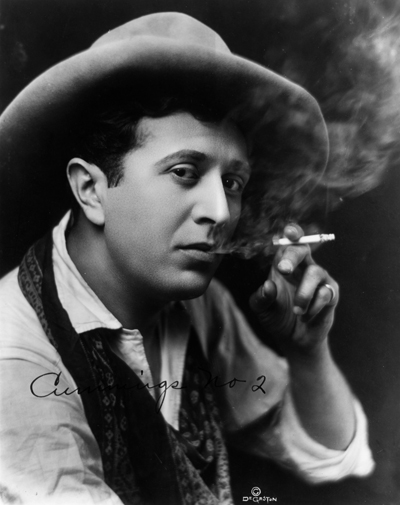Do you think you can tell things about writers from the way they look in a painting or photograph? A more demanding test: from their books can you predict how authors look? It sounds unlikely, yet, upon seeing a photograph of an author, we do find ourselves exclaiming: ‘That’s not how I thought he’d look!’
In Portrait of the Writer there are 250 photographs with a potted biography opposite each. ‘In the best instances,’ says Goffredo Fofi in the foreword, ‘we can see in the photograph that the writer (although not just the writer) has discovered something about himself or herself that he or she was unaware of or had not reflected upon sufficiently.’ Can we, though?
Take E.E. Cummings (above), photographed, we are told, in Cambridge Massachusetts in 1920. The image is surprising. The defining feature is a wide-brimmed felt hat that Tom Mix might have been proud of, in the tradition of J. B. Stetson’s ‘Boss of the Plains’ creation from 1865. Cummings wears a neckerchief over an open shirt and is enjoying a cigarette, the smoke of which adds atmosphere. He is as spruce as a plainsman fresh out of the barber’s after delivering 300 head of Texas longhorns. The unknown photographer has smoothed over the skin tones.
The picture was taken three years before Cummings published his first verse collection. In 1920 he was busy with his memoir, The Enormous Room, about his experiences as an ambulance driver on the western front in the Great War and his three-month imprisonment while facing charges of spying. None of this is to be guessed from the photograph. Apart from the cigarette, he looks very unlike his image in later photographs, from which you might think he was a private detective.
Goffredo Fofi is a noted Italian writer on film, or rather, ‘a sage, atavist, journalist and cinematic critic’.








Comments
Join the debate for just £1 a month
Be part of the conversation with other Spectator readers by getting your first three months for £3.
UNLOCK ACCESS Just £1 a monthAlready a subscriber? Log in